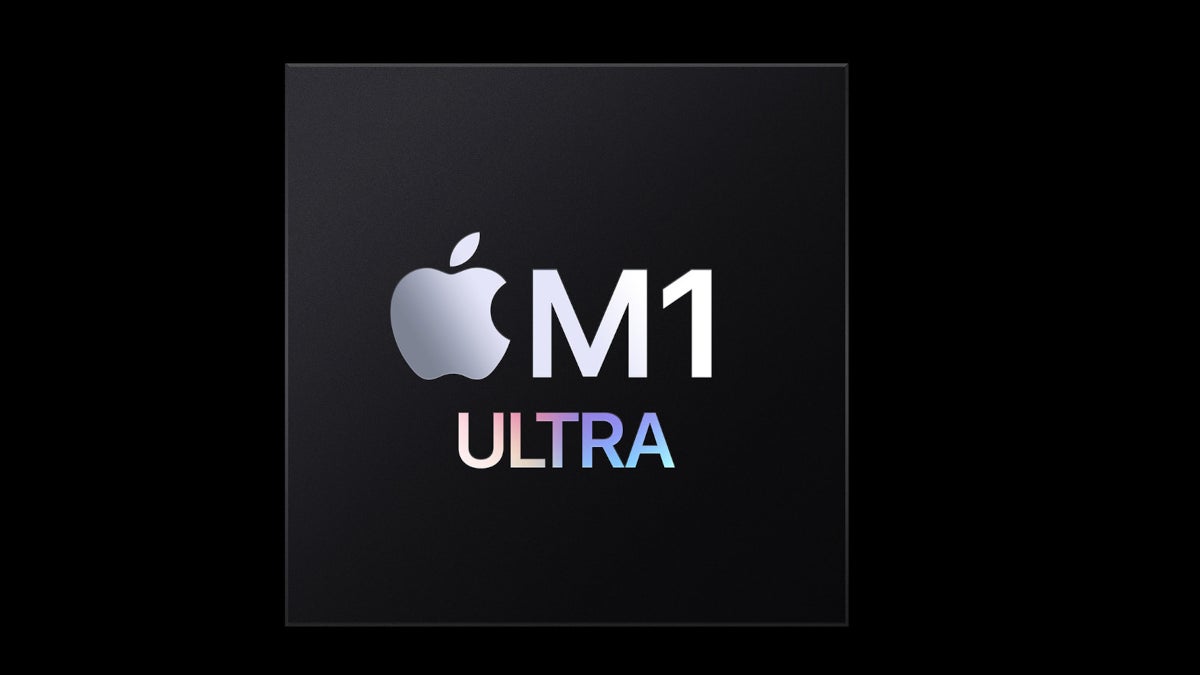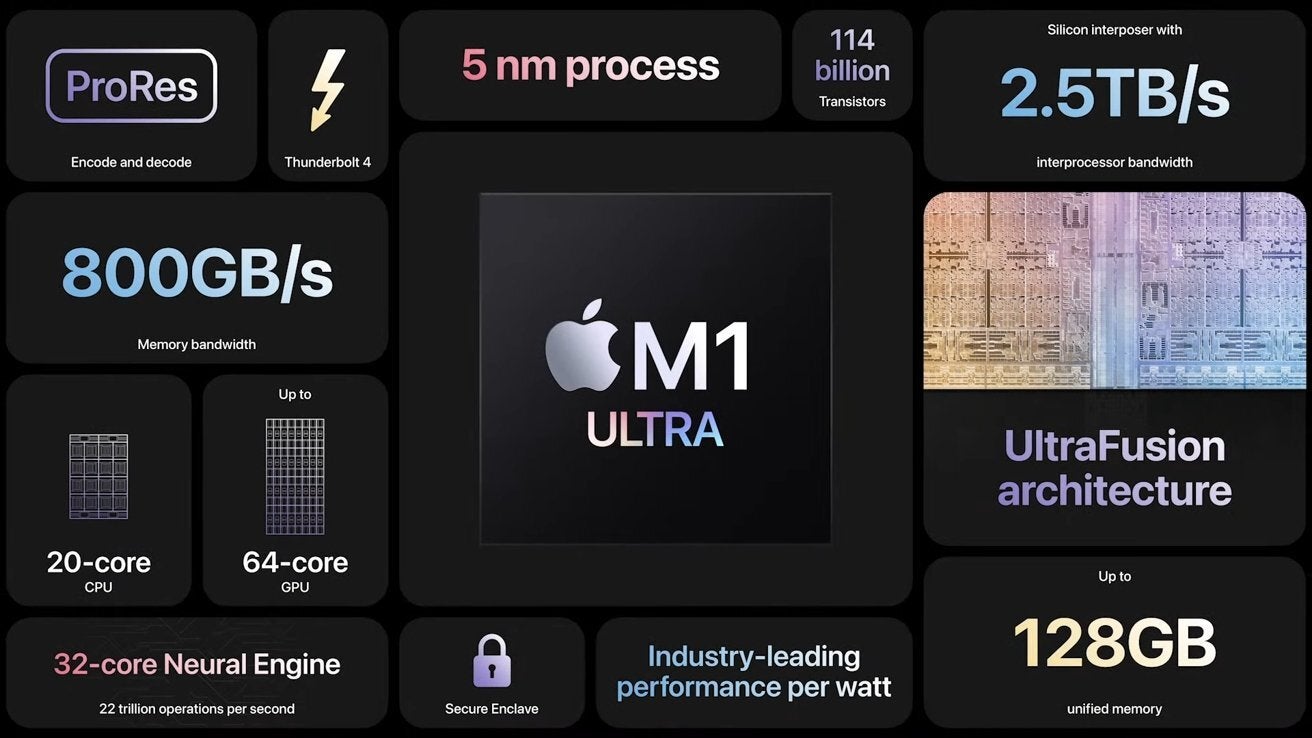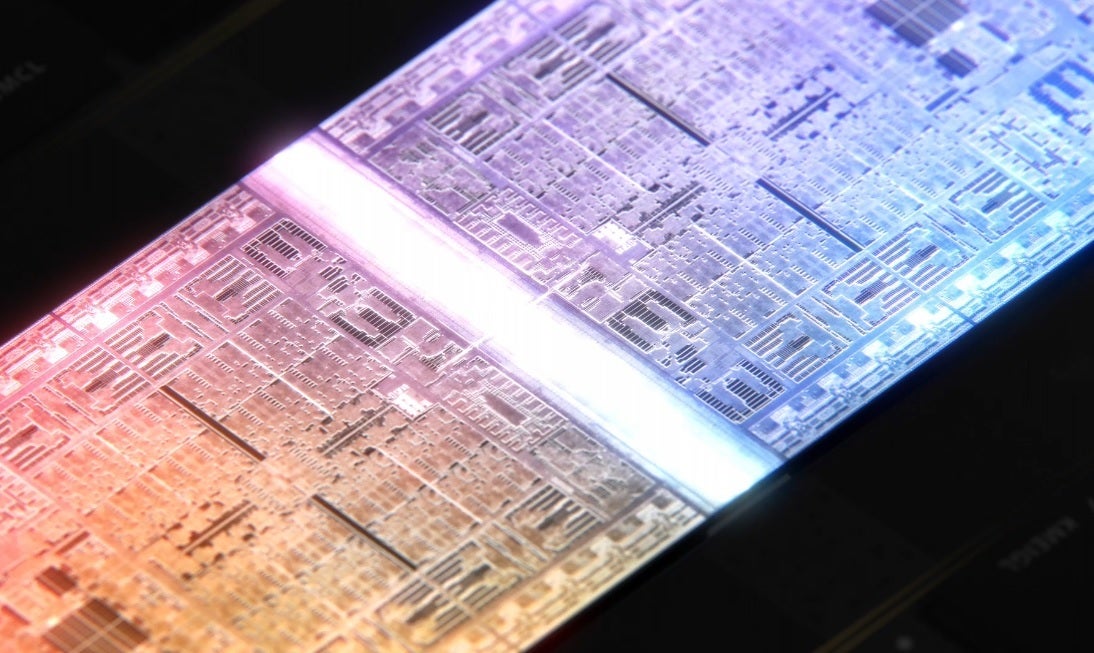Apple combines two chips to create the M1 Ultra with 114 billion transistors

Last October, Apple introduced two new chipsets, the M1 Pro with 33.7 billion transistors, and the M1 Max with a whopping 57 billion transistors. Today, Apple introduced an even more powerful chip that is 8 times faster than the M1used to power the just-announced iPad Air and is also found inside the iPad Pro.
The Apple M1 Ultra SoC is equipped with 114 billion transistors. The chip is made possible thanks to a hidden feature on the M1 Max that allows two M1 Max chips to combine in a die-to-die process that Apple calls UltraFusion. The M1 Ultra features a 20 core CPU (16 high-performance cores and 4 high-efficiency cores), a 64 core GPU, and a 32 core neural engine that performs up to 22 trillion operations per second.

Apple introduces the new M1 Ultra chip
The new chip supports unified memory of up to128GB with 800 GB/s of bandwidth and will first be deployed in the new Mac Studio. Johny Srouji, Apple’s senior vice president of Hardware Technologies says, "M1 Ultra is another game-changer for Apple silicon that once again will shock the PC industry. By connecting two M1 Max die with our UltraFusion packaging architecture, we’re able to scale Apple silicon to unprecedented new heights."


He added, "With its powerful CPU, massive GPU, incredible Neural Engine, ProRes hardware acceleration, and huge amount of unified memory, M1 Ultra completes the M1 family as the world’s most powerful and capable chip for a personal computer." Typically, two chips are connected through a motherboard which can lead to issues including increased latency which means that the time between tapping on a key and the desired action appearing on the display is longer.

The M1 Ultra is made by combining two M1 Max chips
Using the UltraFusion technology, Apple can have the software on a device recognize the chip as one unit and the M1 Ultra acts like it is just one SoC. The M1 Ultra is manufactured by foundry powerhouse TSMC using its 5nm process node.
Apple says that the M1 Ultra completes its M1 line of chipsets which means we could see the company start developing an M2 line of silicon in the future.
Follow us on Google News













Things that are NOT allowed:
To help keep our community safe and free from spam, we apply temporary limits to newly created accounts: